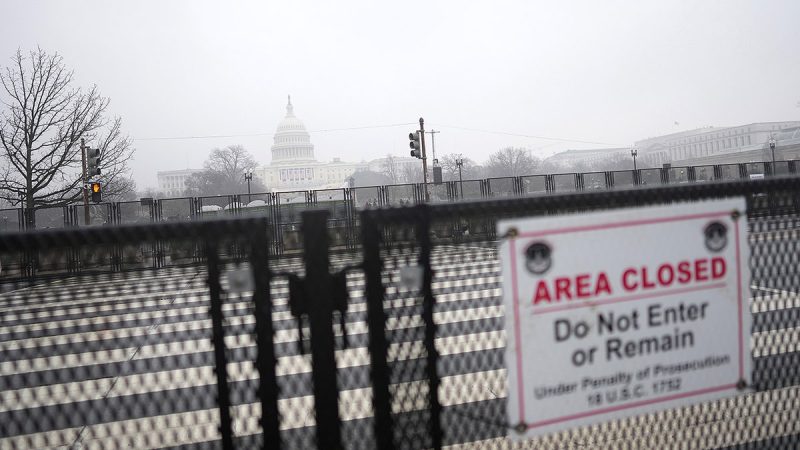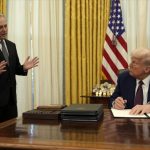
President Donald Trump’s swearing-in ceremony Monday featured the largest, most complex security footprint of any inauguration in U.S. history.
The nation’s capital was transformed seemingly overnight from a pedestrian-friendly city into a daunting and impenetrable fortress – the result of a multi-agency task force that erected 30 miles of anti-scale fencing, coordinated aerial surveillance and drones, and saw the deployment of tens of thousands of law enforcement, military personnel, undercover agents, and national guard trucks across D.C.
The impressive, whole-of-government security effort on Inauguration Day was unprecedented, and not without reason: Trump was the victim of two assassination attempts during the 2024 campaign — including a shooter who came so close to him as to nick his ear — and a domestic threat landscape that was heightened further by the terrorist-inspired attack in New Orleans and the execution-style killing of United Healthcare CEO Brian Thompson in Midtown Manhattan late last year.
It’s notable, then, that this year’s sprawling security footprint did not expressly include one key component considered fundamental to U.S. tradition: The naming of a designated survivor.
In D.C., the tightly coordinated federal protection efforts were carefully planned long ahead of Trump’s inauguration ceremony by the Secret Service and many other federal agencies.
It’s both a nod to recent security concerns, and more largely an effort to protect the U.S. body politic, foreign dignitaries, donors, and thousands of attendees from any mass catastrophe or threat.
The designated survivor, who in a catastrophic event would bear the responsibility of leading the U.S. in the aftermath of a crisis, is typically a Cabinet officer when major security events put elected officials all in one spot, such as inaugurations and State of the Union addresses.
Previous designated survivors have included former DHS secretary Jeh Johnson, former Energy Secretary Rick Perry, and former Defense Secretary Robert Gates, who was tapped for the role during President Barack Obama’s inauguration in 2009.
Gates, a George W. Bush appointee, was kept on by Obama and served in his Pentagon role until July 2011, according to his official Defense Department biography.
The survivor’s location, and sometimes identity, remains confidential until after the event disperses and its attendees have safely returned home. In high-profile events, a broader contingency plan is in place.
As Garrett Graff reported in 2016, Gates’s role as designated survivor during Obama’s inauguration also included the support of another government heavyweight — James Clapper, then the undersecretary of intelligence — who stowed away during the ceremony deep in an underground government bunker in Pennsylvania, a backup to the backup, if you will, and a nod at the detailed succession plan carefully crafted by a group defense, intelligence, and other federal agencies over the span of some 40-plus years.
So it was notable that no designated survivor was named during the 47th presidential inauguration.
No reason was given for the absence of the designated survivor, which was first reported by NBC News.
It’s possible that the sprawling security presence coordinated in the run-up to Jan. 20 was deemed sufficient to protect against any threats.
It’s also possible the event, which was held indoors and thus restricted to the public and to members of the news media, was limited enough as not to warrant the designated survivor.
Ahead of the event, FBI and Secret Service personnel stressed the stringent security measures in place and the tight vetting of any ticketed attendees.
David Sundberg of the FBI’s Washington Field Office told Fox News earlier this week that the bureau was not tracking ‘any specific or credible threats’ for Inauguration Day.
‘All attendees will undergo screening,’ said Matt McCool, special agent in charge of the Secret Service’s Washington Field Office.
These individuals told Fox News that the fencing alone is more than any other designated National Special Security Event in the past.
‘Designated checkpoints will be set up for members of the public interested in attending the inauguration,’ McCool said ahead of the inauguration — a protocol also applied to attendees of the modified Capital One festivities, which were moved inside due to frigid temperatures.
Neither the White House, DHS nor the FBI immediately responded to Fox News Digital’s request for comment on the absence of a designated survivor.
Fox News Digital’s Elizabeth Elkind contributed to this report.






